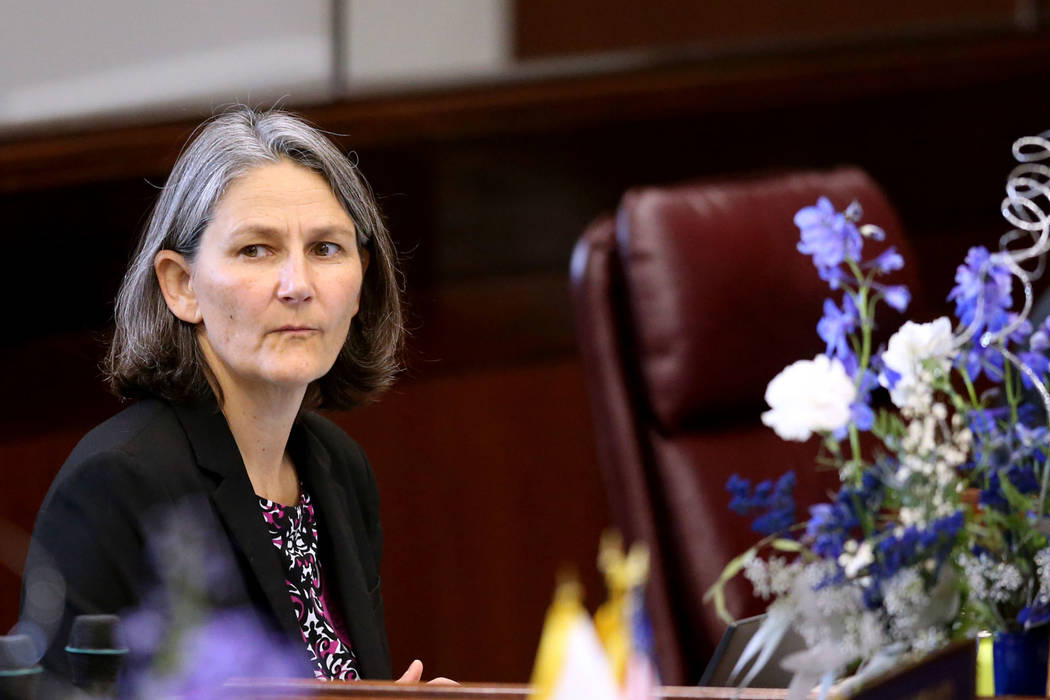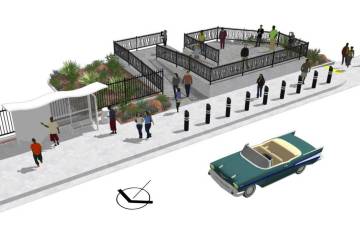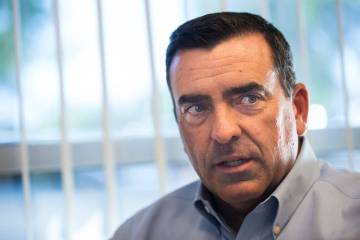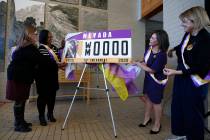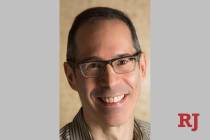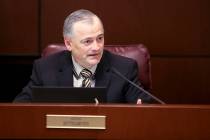Pension secrecy bill gets hearing before Nevada Senate committee
CARSON CITY — Public employee groups and government transparency advocates sparred Friday over a proposed law that would shield retired public employees’ names from the public record.
Under Nevada law, retired employees’ names, pension amounts, their last government employer, number of years worked and retirement year are considered public information.
Senate Bill 224, sponsored by Democratic Sens. Julia Ratti, David Parks and Joyce Woodhouse, would make it so that the names of those receiving retirement benefits from the state would become confidential.
For the bill’s supporters, the change is about protecting retirees from potential identity theft and other privacy concerns.
“At what point is a public servant no longer a private person?” Ratti asked while presenting the bill in a Friday hearing in front of the Senate Government Affairs Committee, which took no action on the bill.
Opponents of the bill, meanwhile, argued that knowing the names helps to identify double dipping in the system and detect potentially fraudulent disability claims, and that releasing the retirees’ names does not impose any additional risk.
The current law, which requires retiree names to be disclosed, is akin to “serving their public information up on a platter,” Ratti said, and makes the retired seniors easier targets for identity theft or online and phone scams.
Another reason for the bill, Ratti said, is to clarify the law in hopes of cutting down on the state’s costs in litigating public records lawsuits.
In the most recent case, which was filed in 2015, the Nevada Policy Research Institute filed a public records request seeking retiree names, salaries, dates of retirement, years of service and cost-of-living increases from the Public Employees Retirement System of Nevada for publication on TransparentNevada.com.
The retirement system had disclosed the requested information in 2013, but the state agency refused to provide the information for the following year, according to court documents.
The state argued that the raw data included only redacted Social Security numbers, and it had no duty to create a new document in order to satisfy the request for names.
Nevada Policy Research Institute sued in District Court in July 2016, and won in 2017, but the retirement system appealed to the Nevada Supreme Court.
In the majority opinion issued in October, Chief Justice Michael Douglas wrote that “searching PERS’ electronic database for existing non-confidential information is not the creation of a new record.”
Ratti requested the new bill seeking to make the names of retirees confidential the following month.
Robert Fellner, policy director for the Nevada Policy Research Institute, said the bill would make it “almost impossible” to identify cases of corruption, abuse or conflicts of interest, and noted that two of the bill’s sponsors, Parks and Woodhouse, each receive annual pensions of $100,000.
Fellner argued that Nevadans have a “fundamental right to see how their tax dollars are being spent.”
Ratti disagreed with Fellner’s characterization of the money.
“It’s not the government’s money. These are benefits that were earned by these employees,” Ratti said. “They did not sign up knowingly to have their financial information be public for the remainder of their lives. I just do not think this is a realistic expectation of what we should be asking of our public employees.”
Contact Capital Bureau Chief Colton Lochhead at clochhead@reviewjournal.com or 775-461-3820. Follow @ColtonLochhead on Twitter.



